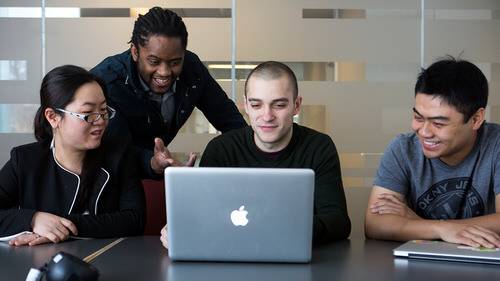
Google has Google Now, Apple has Siri and Microsoft has Cortana—these personal digital assistants are playing an increasingly dominant role on mobile and desktop. Now researchers from the University of Michigan have unveiled an open-source alternative called Sirius, the latest of several similar open-source efforts along the same line.
Mobile phone makers, wearable startups and app developers could all potentially use Sirius to bring some instant smarts to their projects in the not-too-distant future, Jason Mars, one of the co-directors at U-M’s Clarity Lab where the system has been developed, said in a video:
Unlike Google Now, Siri and Cortana, Sirius is free to use and can be customized as required by anyone interested in the technology. “Now the core technology is out of the bag, and we all have access to it,” says Mars in a press statement. “Instead of making an app to run on the Apple Watch, for example, maybe I could make my own watch. We’re very excited to see what the world comes together to build and learn with Sirius as a starting point.”
The Sirius system comprises speech recognition, image matching, natural language processing and a question-and-answer mechanism powered by the cloud. It could, for example, answer the question “when does this place close?” when shown an image of a restaurant.
Being able to ask questions about what you’re seeing is one of the unique features of Sirius, according to Clarity Lab doctoral student Johann Hauswald, and helps to differentiate it from similar open-source projects in the same area.
Those projects include Jasper, which can bring voice control to almost any device (such as the Raspberry Pi), and JuliusJS, which focuses on adding Siri-style commands to Web apps. Sirius goes further than both though, building on the basics of voice control to add natural language interpretation, intelligent responses and image recognition.
Data Center Architecture
Unlike Jasper or JuliusJS, Sirius does more than identify a voice command and act accordingly. It’s also designed to push the boundaries of data center system architecture, providing an open source approach that other digital assistants can make use of in the years ahead as they become more knowledgeable, more capable, and more widespread.
The demo version of Sirius, which the team will show off on March 14 at an international technology conference, is based around a static version of Wikipedia. Users can ask factual questions and get answers back. The researchers will release the software code shortly after.
That database of Wikipedia entries could be swapped out for anything else a company likes: Academic research, auto repair manuals, cooking tips, a database of medicines, and so on.
The system was built by stitching together open source projects from various institutions and companies, including Microsoft Research and Qualcomm. Other firms and agencies—among them Google, ARM, the Defense Advanced Research Projects Agency (DARPA) and the National Science Foundation—provided funding,
Although Linux may not have much of the desktop PC market, it has the honor of running many of the world’s servers and mainframes, and it’s the foundation of Android. In the same way, the team behind Sirius wants their project to act as the bedrock of the digital assistants of the future.
Photo by Joseph Xu, Michigan Engineering, Communications & Marketing, University of Michigan

















